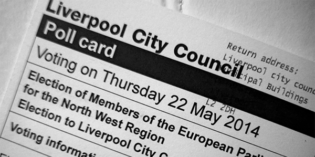Tag: Scotland

General election 2019: a postcode lottery
The 2019 general election produced a strong Conservative majority in the House of Commons, with the first-past-the-post electoral system delivering the party 56% of parliamentary seats on the basis of 43.6% of all votes. Beyond this national figure, Ian Simpson explains, the nations and regions of the UK returned some even more disproportional results, meaning millions of voters across the UK are left unrepresented in Parliament.

European elections 2019: what will happen in Scotland?
In 2014 four parties won two or one of Scotland’s six seats, with the SNP topping the poll at 29%. This time SNP support is high enough that they are sure of winning three seats, with the Brexit Party also guaranteed a seat. The remaining two seats are up for grabs between the big two and the other parties (Labour, Conservatives, Liberal Democrats and Greens). With voters able to cast only a single vote for a party list in this PR election, which takes place tomorrow, 23 May, the Democratic Audit team reviews the likely outcomes for the parties, and looks at who the potentially electable candidates are.

What party competition in England will look like after European Parliament elections end
European Parliament elections may not have been popular, but they used proportional representation – something which England’s national elections lack. Heinz Brandenburg looks at what this means for smaller parties, which have a hard time making headway under the first-past-the-post system.

Beyond anecdotes on lowering the voting age: new evidence from Scotland
The question whether to lower the voting age in the UK has been the subject of ongoing debate. Jan Eichhorn (University of Edinburgh) writes that, although much of the discussion has been based around normative arguments and personal stories, it is crucial to review the evidence so that the empirical arguments prevail.

‘Your tenants are gay, get over it!’: how housing services discriminate against LGBT+ people
Are public services delivering equality for LGBT+ people? In a socially progressive society like the UK, the presumption is that they probably are. But Peter Matthews and Chris Poyner‘s research suggests some very basic steps are still required to deliver equality, notably in Scottish housing and homelessness services. Pride march in Glasgow, 2010. Photo: Pride Glasgow via a […]

Audit 2017: How democratic is the overall set-up of devolved government within the UK?
Devolution in the UK encompasses a range of quite different solutions in three countries (Scotland, Wales, and Northern Ireland), plus lesser delegations of powers to London and some English cities. Designed to meet specific demands for national or regional control and to bring government closer to citizens, there are important issues around the stability and […]

England’s devolved regions are too small. Bigger ones would have more clout
England’s political identity is too often driven by the south, argues Ed Cox. People in the north identify much more closely with their cities and regions than with the pan-England flag. Attempts to devolve government in the north have shown some promise but are partial and piecemeal and the current city-regions and combined authorities are too […]

Audit 2017: How democratic is local government in Scotland?
Local authorities play key roles in the devolved government of Scotland, as the only other source of elected legitimacy and as checks and balances on the domestic concentration of power in Scotland’s central institutions. As part of the 2017 Audit of UK Democracy, James Mitchell and the Democratic Audit team explore how democratically local councils have […]




 Democratic Audit's core funding is provided by the Joseph Rowntree Charitable Trust. Additional funding is provided by the London School of Economics.
Democratic Audit's core funding is provided by the Joseph Rowntree Charitable Trust. Additional funding is provided by the London School of Economics.